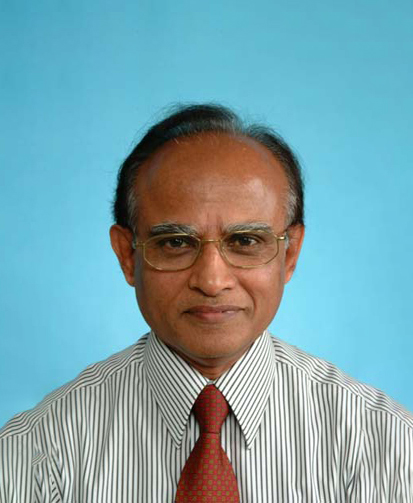

题目:A Journey Towards Extreme Design and Manufacturing
时间:2019年10月17日 14:00-16:00
地点:suncitygroup太阳新城官网 F310会议室
邀请人:张鑫泉 副教授(智能制造与信息工程研究所)
Biography
Professor Mustafizur Rahman had been with the Department of Mechanic al Engineering at the National University of Singapore from 1982 to 2018 and currently the Managing Director of Mikrotools Pte. Ltd. His research interests include Ultra-precision machining, micro/nano machining, design and development of machine tools and devices for micro/nano machining, and high-speed machining of difficult-to-machine materials. Some of his latest research areas are: Hybrid simultaneous EDM/ECM, Ductile mode machining of brittle materials, Machining of freeform features based on Digital Images. Some of his major awards are William Jonson Gold Medal for Lifetime Achievement in Material Processing Research and Teaching in 2009, the Leading-Edge Manufacturing Achievement Award from the JSME in 2005, and IES Prestigious Engineering Achievement Award in 2003, A M Strickland Prize from IMechE in 2009. He has authored more than 500 journal and conference papers. He is the joint editor of two international journals and in the editorial board of 9.
al Engineering at the National University of Singapore from 1982 to 2018 and currently the Managing Director of Mikrotools Pte. Ltd. His research interests include Ultra-precision machining, micro/nano machining, design and development of machine tools and devices for micro/nano machining, and high-speed machining of difficult-to-machine materials. Some of his latest research areas are: Hybrid simultaneous EDM/ECM, Ductile mode machining of brittle materials, Machining of freeform features based on Digital Images. Some of his major awards are William Jonson Gold Medal for Lifetime Achievement in Material Processing Research and Teaching in 2009, the Leading-Edge Manufacturing Achievement Award from the JSME in 2005, and IES Prestigious Engineering Achievement Award in 2003, A M Strickland Prize from IMechE in 2009. He has authored more than 500 journal and conference papers. He is the joint editor of two international journals and in the editorial board of 9.
Abstract
In line with the advancement of precision and ultra-precision manufacturing, the demand for higher level of accuracy of products is getting utmost importance, especially in the case of miniature products requiring higher dimensional accuracy and surface quality. In addition, due to the requirement of stringent functional qualities, products need to have extreme accuracy to get rid of rejection. To arrive at these targets machined products need to have tolerance-fee dimensions, flawless and nano-level surface finish. Consequently, it becomes necessary to manufacture extreme products having extreme dimensional accuracy to meet extreme functionality. Thus, there arises the necessity to get rid of the possibilities of errors from their sources. These aims and objectives can be achieved only through; (i) the fabrication of dimensional tolerance-free or at least near-tolerance-free components, (ii) development of machine tools capable of manufacturing such products and (iii) through the development of extreme processes. An attempt has been made in this study to evaluate the current status of the above-mentioned areas of manufacturing and to propose what needs to be done to arrive at the targets.
